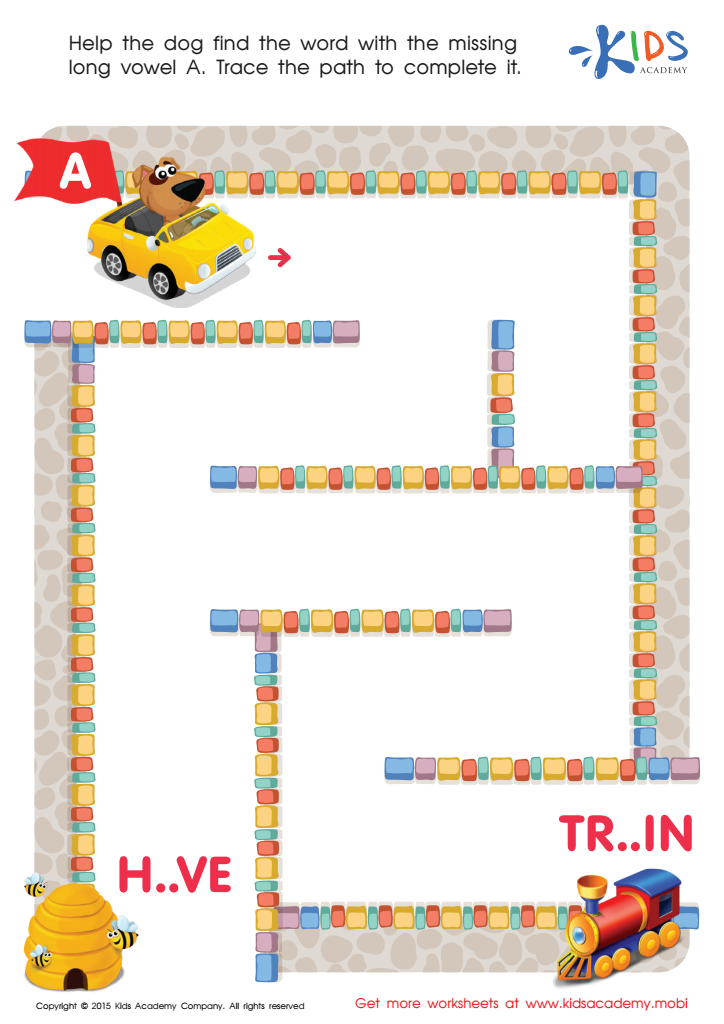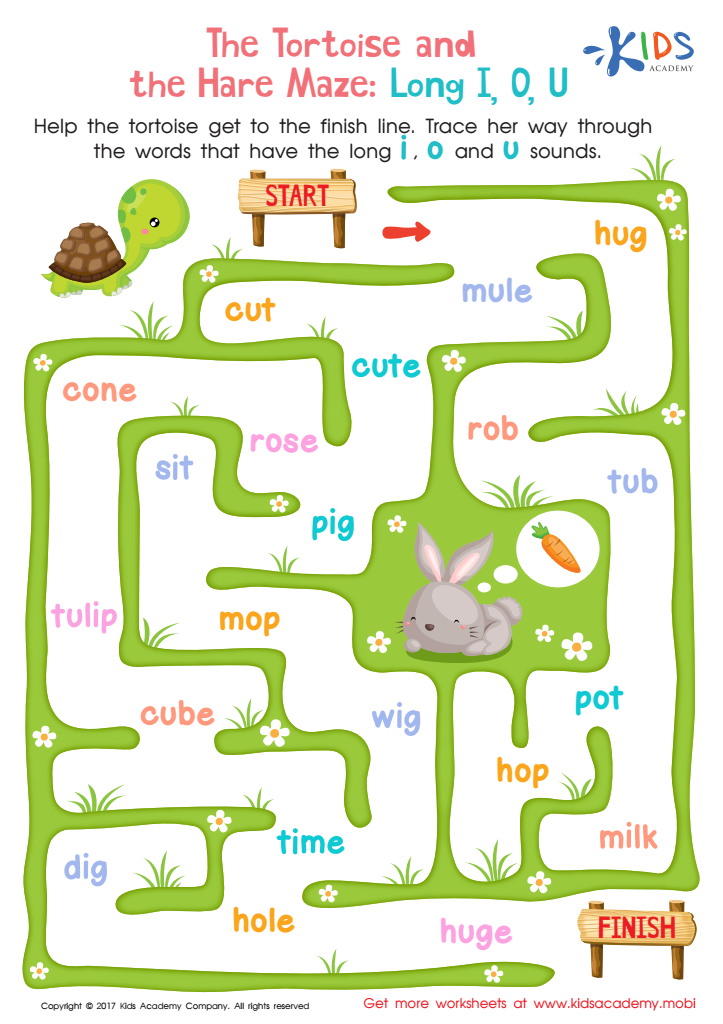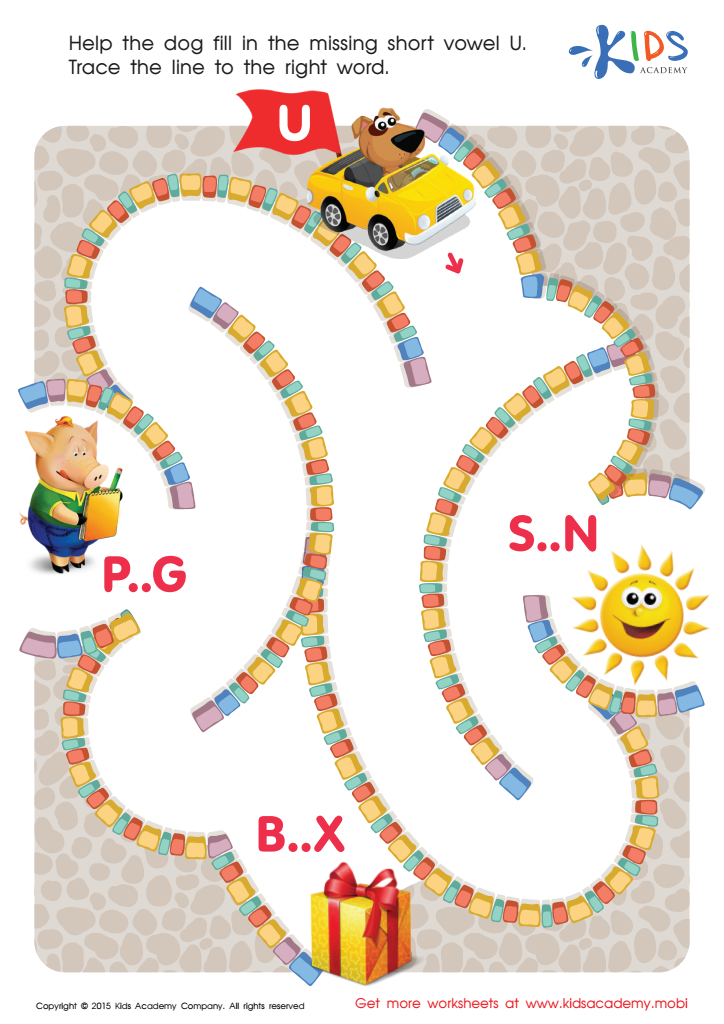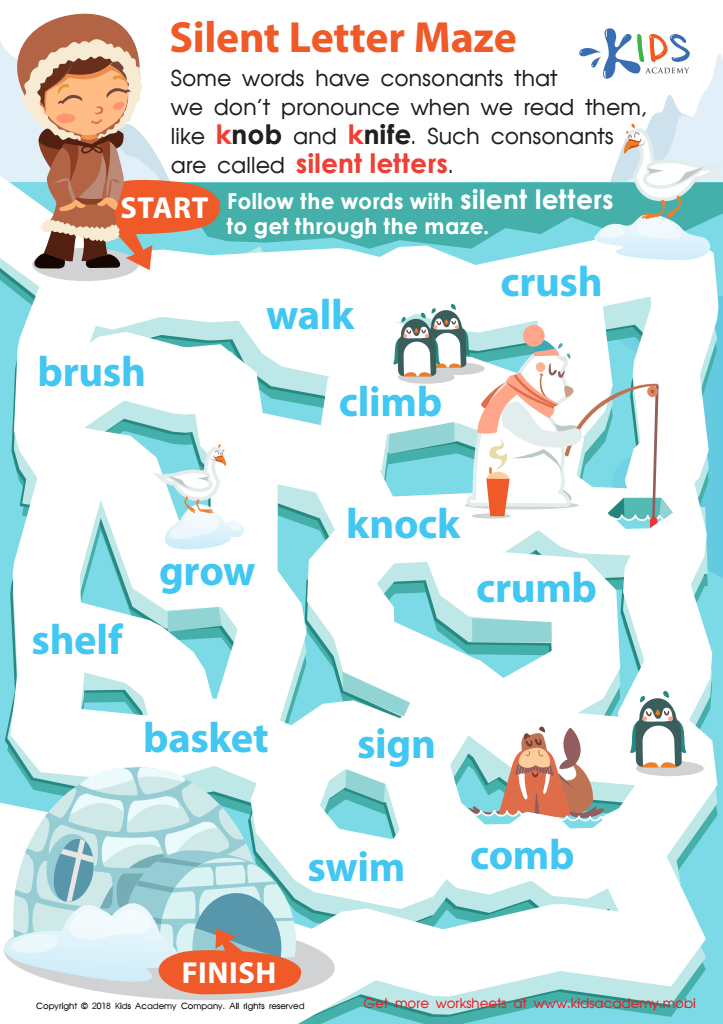Reading enhancement Vowels Worksheets for Ages 6-9
4 filtered results
-
From - To
Boost your child’s reading skills with our "Reading Enhancement Vowels Worksheets for Ages 6-9". Designed specifically for early learners, these engaging printables help children master vowel recognition, pronunciation, and usage in a fun and interactive way. Perfect for ages 6-9, our worksheets are filled with colorful illustrations and diverse activities that make learning captivating and enjoyable. Watch as your young reader builds a strong foundation in phonics and begins reading with confidence. Ideal for both classroom and at-home learning, our resources support your child’s journey to reading excellence. Start now and see the improvement!


Long Vowel Sound A Worksheet


Long I, O, U Words Worksheet


Short Vowel Sound U Worksheet


Silent Letter Maze Worksheet
Reading enhancement focused on vowels for ages 6-9 is critical because these years are foundational for literacy development. Vowels are integral to the English language; they form the nucleus of syllables and are essential for word construction. Children at this age primarily grapple with decoding and fluency, both of which are directly impacted by their understanding of vowels.
Focusing on vowels aids in word recognition and pronunciation. Mastery in this area helps children decode unfamiliar words, promoting smoother and more confident reading. Vowels also influence spelling patterns and phonics rules, which are crucial for writing skills.
Additionally, strong vowel awareness supports comprehension. When children can pronounce words properly, they can more easily recognize and understand them in context. This is particularly important for early readers who are building their vocabulary and learning new concepts.
Effective vowel instruction can also mitigate long-term literacy challenges. Children who struggle with vowels early on can face ongoing reading difficulties, leading to academic setbacks. By ensuring that children have a solid grasp of vowel sounds, parents and teachers set them up for ongoing success in their educational journey.
In summary, emphasizing vowel enhancement in early literacy curricula is essential for fostering fluent reading, accurate writing, and overall academic achievement in young learners.

 Assign to My Students
Assign to My Students

















